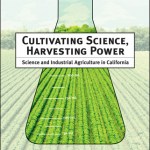sociology
RaceWire is reporting that Thomas Hagan, one of three men convicted for the assassination of Malcolm X (and the only to plead guilty), was released after his 17th attempt at parole yesterday. Hagan, at the time of the murder, was known as Talmadge X and was a militant member of the Nation of Islam.
According to The New York Times:
Mr. Hagan said in a 1977 affidavit that he and several accomplices . . . decided to kill Malcolm X because he was a "hypocrite" who had "gone against the leader of the Nation of Islam," Elijah Muhammad. Mr. Hagan said that after one man shot Malcolm X in the chest…
Tom Rees, Income inequality drives church attendance:
...we find that attendance rates are particularly high in countries with more socioeconomic inequalities and fewer social welfare expenditure. This effect equally applies to both poor and rich people, which is in line with the idea that because of economic mobility and the possibility of unemployment in the (nearby) future also the more affluent population feels more insecure in countries with more inequalities and without a well-developed social welfare system.
We also see that people with a lower income and who are unemployed attend…
At Cognition & Culture, a review of Sarah Blaffer Hrdry's new book, Mothers and Others: The Evolutionary Origins of Mutual Understanding. I really liked her previous work, Mother Nature, so I'm definitely going to check this out. Sarah Blaffer Hrdy was a prominent source in Ullica Segerstrale's Defenders of the Truth: The Sociobiology Debate.
Or at least that's the joke. Interesting post from Tom Rees which illustrates the utility of cross-cultural tests of general theories-of-religion. Rees notes:
One of the leading theories of why religion is so popular goes by the ominous name of 'Terror Management Theory'. Put simply, this is the idea that people turn to religion to ease their fear of death.
...
While Christians did indeed have a lower death anxiety than the non-religious, Muslims did not. In fact, their death anxiety was markedly higher than both the other groups.
When the participants were asked to explain why they felt the…
Peter and Billy Getty over at City Brights write:
There are slews of people richer than we are, just in this neighborhood. We're more famous for being rich than we really are rich. But we have enough to belong to the leisure class, meaning we get to spend very little of our time doing anything we don't feel like, and we have means to sample, if not to gorge on, pleasures that most people, sad to say, won't likely ever share in -- things like yacht trips and safaris, ludicrously expensive wine, and private jet travel. You can be richer than we are, but you can't live a whole lot better without…
Via Dienekes, Differential parental investment in families with both adopted and genetic children:
Stepchildren are abused, neglected and murdered at higher rates than those who live with two genetically related parents. Daly and Wilson used kin selection theory to explain this finding and labeled the phenomenon "discriminative parental solicitude." I examined discriminative parental solicitude in American households composed of both genetic and unrelated adopted children. In these families, kin selection predicts parents should favor their genetic children over adoptees. Rather than looking…
Pt. I | Pt. 2 | Pt. 3 | Pt. 4
---
Part 2 with Christopher Henke, discussing his book Cultivating Science, Harvesting Power, follows below. All entries in the author-meets-blogger series can be found here.
WF: Now I can get back to the interpretive framework and your own concepts when understanding your empirical evidence. "Repair" is a guiding framework for you here, a way of approaching, understanding, and explaining your research findings. So what do you mean, repair?
CH: We use the term repair in everyday life to describe the process of fixing things---sociologists use repair as a…
The World's Fair is pleased to offer the following discussion about Cultivating Science, Harvesting Power: Science and Industrial Agriculture in California (MIT Press, 2008), with its author Christopher Henke. Henke is an assistant professor of sociology at Colgate University, an STS scholar, and a contributor to Colgate's environmental studies program.
Cultivating Science, Harvesting Power, says its publisher, "explores the ways that science helped build the Salinas Valley and California's broader farm industry." In doing so, Henke provides an account of "how agricultural scientists and…
I haven't read the study— it would take some digging to find, after all!— only the CNN Article, but the title sums up half of the results: "Men want hot women, study confirms."
In a nutshell, the study found that in a speed-dating test, men, despite what they said they were looking for, almost always went for the most physically attractive women (measured I am not sure how). Women, meanwhile, went for a man whose "desirability" (again, measured I am not sure how) matched their own assessment of how attractive they are.
The conclusion the article claims is that humans, despite high-minded…

